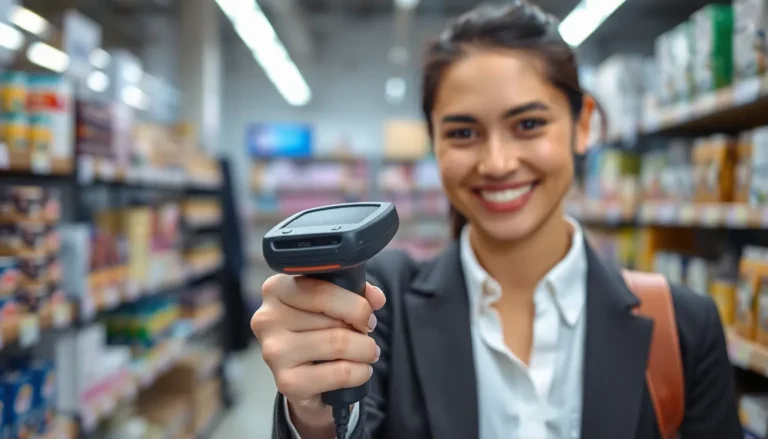In today’s fast-paced digital world, consumers expect brands to know them better than their best friends. Enter B2C marketing automation, the superhero of the marketing realm. It swoops in to save the day by streamlining campaigns and personalizing customer experiences faster than you can say “click to buy.”
Imagine a world where marketers can effortlessly engage customers with tailored messages, all while sipping their morning coffee. With the right automation tools, businesses can nurture leads, boost sales, and even find time for that elusive lunch break. If you’re ready to transform your marketing strategy and make your competition green with envy, buckle up. This article is your ticket to mastering the art of B2C marketing automation, where efficiency meets creativity in one delightful package.
Table of Contents
ToggleOverview of B2C Marketing Automation
B2C marketing automation transforms how brands engage with consumers. By utilizing advanced tools, businesses can automate repetitive tasks like email campaigns, social media posting, and customer segmentation. Personalized content becomes possible, allowing brands to address individual customer preferences.
Many companies experience increased efficiency through automation. Automated workflows streamline processes, enabling marketers to focus on strategy rather than manual tasks. For example, brands can set up drip campaigns that nurture leads over time, keeping their products top of mind without constant oversight.
Consumer data plays a vital role in effective B2C marketing automation. Brands analyze user behavior, preferences, and interests to craft tailored messages. Automation tools capture and process this data in real time, allowing for adaptive marketing strategies.
Integration with various platforms enhances the effectiveness of B2C marketing efforts. Social media channels, email services, and CRM systems all contribute to a unified marketing strategy. This interconnected approach optimizes customer interactions across multiple touchpoints.
Tracking and analyzing campaign performance remains essential. Automation tools provide valuable insights through metrics such as open rates, click-through rates, and conversion rates. These data points help brands refine their strategies and improve future campaigns.
Successful brands embrace B2C marketing automation not only as a means of efficiency but also as a way to create memorable customer experiences. Personalized interactions foster loyalty and encourage repeat business. Automating engagement processes paves the way for innovation and competitive advantage in today’s digital marketplace.
Key Features of B2C Marketing Automation Tools

B2C marketing automation tools offer various features that streamline processes and enhance customer engagement.
Email Marketing Automation
Email marketing automation simplifies the management of email campaigns. Brands can schedule messages and personalize content based on customer behavior. These tools enable marketers to automate follow-ups and nurture leads efficiently. Open rates and click-through rates improve as recipients receive relevant offers at the right time. Furthermore, advanced analytics track engagement metrics, helping brands refine future campaigns.
Customer Segmentation Capabilities
Customer segmentation capabilities allow brands to target specific audiences effectively. Marketers analyze consumer data to create segments based on demographics, behavior, and preferences. Personalized marketing messages resonate better with segmented audiences, increasing conversion rates. This feature enhances campaign effectiveness by ensuring that the right message reaches the right person. Automation tools facilitate easy adjustments to segments as customer behaviors evolve.
Benefits of Implementing B2C Marketing Automation
B2C marketing automation offers several advantages that enhance a brand’s effectiveness in engaging consumers. This technology not only streamlines processes but also elevates the overall marketing strategy.
Improved Efficiency and Productivity
Automation drastically reduces the time spent on repetitive tasks. Marketers save hours by automating email campaigns, social media posts, and lead nurturing efforts. This increase in efficiency allows them to shift focus toward strategic projects that drive growth. Results show brands often experience productivity boosts, enabling teams to handle larger volumes of leads without compromising quality. Automation tools help manage workflows seamlessly, allowing for real-time adjustments based on performance metrics. Enhanced operational efficiency translates into better resource allocation and faster campaign deployment.
Enhanced Customer Experience
Personalization stands at the core of effective B2C marketing automation. Tailored content speaks directly to individual preferences, making customers feel valued and understood. Brands leverage consumer data to create targeted messages that resonate, enhancing engagement levels significantly. Automation tools facilitate communication across multiple platforms, ensuring a consistent and cohesive experience. Fast responses to customer inquiries due to automated workflows also contribute to satisfaction and loyalty. Consistently delivering relevant content establishes trust, fostering long-term relationships with consumers. Ultimately, an exceptional customer experience drives brand loyalty and repeat purchases, resulting in increased revenues.
Popular B2C Marketing Automation Platforms
Several platforms stand out in the realm of B2C marketing automation. Each offers unique features that enhance marketing efforts and customer engagement.
Platform Comparison
When comparing platforms, factors including pricing, ease of use, and functionality come into play. Some of the leading tools include HubSpot, Mailchimp, and ActiveCampaign. HubSpot provides a comprehensive suite for managing inbound marketing and sales. Mailchimp excels with robust email marketing capabilities and user-friendly interfaces. ActiveCampaign combines email marketing with customer relationship management, offering advanced automation features. Features such as segmentation and analytics drive efficiency and effectiveness across campaigns. Brands can assess these options based on their specific needs and budget constraints.
User Reviews and Ratings
User reviews play a vital role in selecting the right platform. Many users praise HubSpot for its extensive support and educational resources. Meanwhile, Mailchimp garners appreciation for its intuitive design, making it accessible for beginners. ActiveCampaign enjoys positive feedback for its depth of automation and customer segmentation features. Ratings on platforms like G2 and Capterra provide valuable insights into user experiences. Prospective users often prioritize feedback that highlights both strengths and weaknesses, ensuring they make informed decisions.
Challenges in B2C Marketing Automation
B2C marketing automation faces several challenges that brands must navigate to achieve success. Understanding these challenges enhances marketing strategies.
Integration with Existing Systems
Integrating B2C marketing automation tools with existing systems poses a significant challenge. Brands often rely on diverse platforms for CRM, analytics, and communication. Lack of compatibility between these systems can hinder data flow. Manual data entry becomes necessary if seamless integration isn’t achieved. When automation tools cannot access real-time data, campaign efficiency decreases. Selecting platforms that support robust APIs simplifies integration efforts. Brands benefit from automation when all systems function cohesively, streamlining workflows and making customer interactions more effective.
Data Privacy Concerns
Data privacy concerns pose another challenge in B2C marketing automation. Brands must comply with regulations such as GDPR and CCPA, which govern how consumer data is collected and utilized. Non-compliance can lead to severe penalties, damaging brand reputation. Customers demand transparency about how their information is used, which creates trust issues. Implementing strong data protection measures is crucial for maintaining consumer confidence. Utilizing opt-in mechanisms and offering clear privacy policies can address these concerns. Prioritizing data security not only satisfies legal obligations but also fosters long-term customer relationships.
Conclusion
B2C marketing automation stands as a game changer for brands aiming to thrive in a competitive digital environment. By embracing automation tools, businesses can enhance efficiency while delivering personalized experiences that resonate with consumers. This approach not only streamlines marketing efforts but also fosters deeper connections with customers.
As brands navigate the complexities of automation, focusing on data-driven strategies and seamless integration will be key. The right platform can empower marketers to craft compelling campaigns that drive engagement and loyalty. Ultimately, mastering B2C marketing automation equips brands to adapt swiftly to changing market dynamics and consumer preferences, ensuring long-term success.





